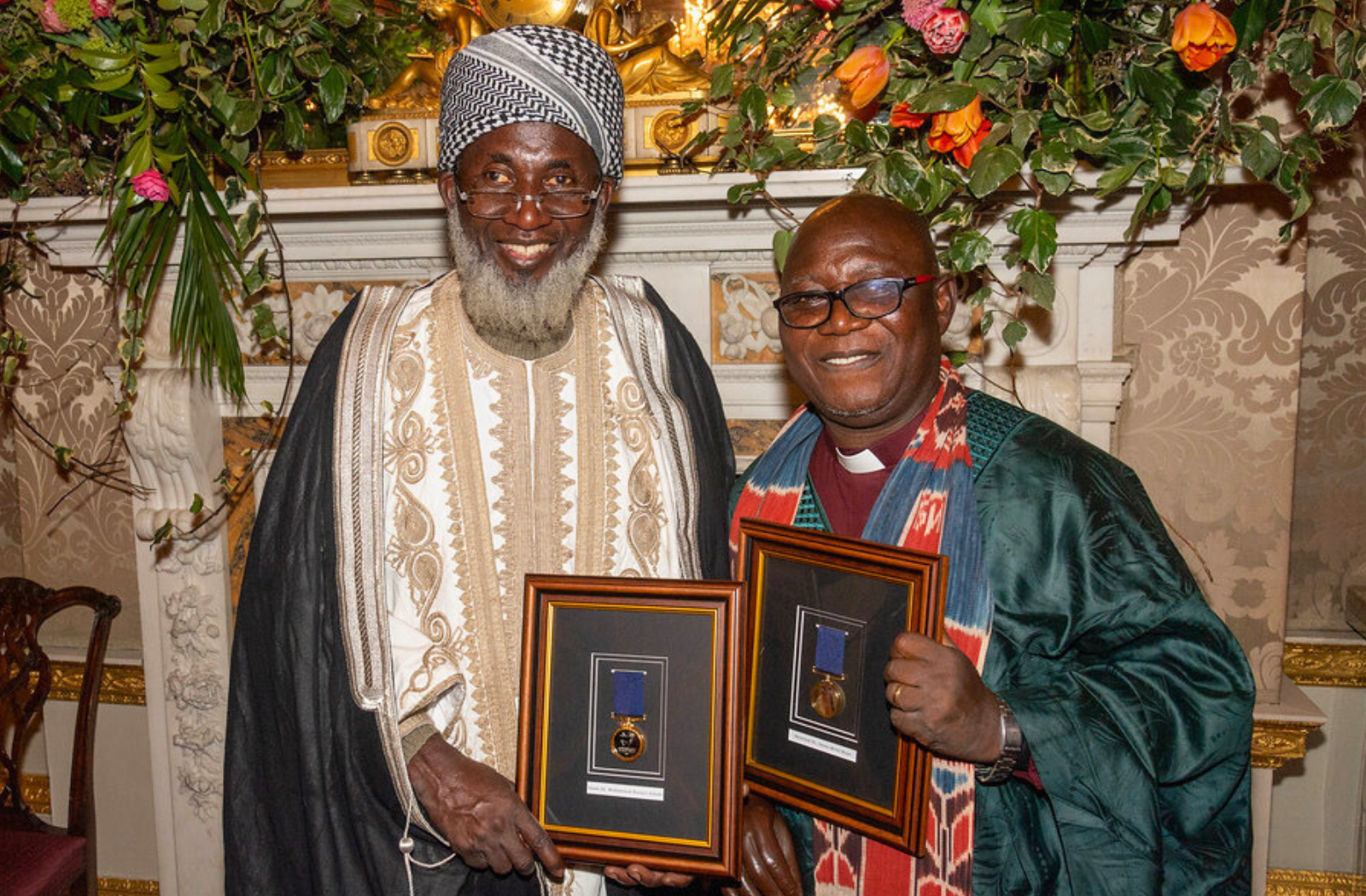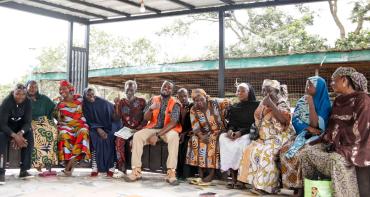"Breaking the cycle of violence is a necessity. Otherwise, there will be no society left to be governed." This was a stark warning from Rev Dr James Movel Wuye, one of the joint winners of the inaugural Commonwealth Peace Prize.

He, along with the other winner, Imam Dr Muhammad Nurayn Ashafa, shared personal success stories of building trust and post-conflict recovery in a recent online event.
At the webinar, held on 2 July 2025, the participants discussed faith-based conflict mediation strategies and highlighted the role of young people, who are often the most affected by conflict, but sidelined from decision-making processes.
Rev Wuye added:
"I lost my hand during the violence in Nigeria in my efforts to protect sacred places. My change came when I stayed in a hotel and shared a room with an Imam and was tempted to take a pillow and suffocate him.
"I was invited to preach and was told you cannot preach with a can of hate. Overcoming that pain, embracing forgiveness and reconciliation and working collaboratively with the Imam was the start of my journey."If we carry hate, we will use the slightest opportunity to vent on innocent people. Without this, you cannot have peace. Generations to come should not carry anger – we should create a new inclusive narrative for the next generation."
In an era where conflict threatens global harmony, the Commonwealth is taking decisive steps to create frameworks for sustained peace across its 56 member countries.
Over the next few months, the Peace Talks Series will bring together experienced peacebuilders, youth peace ambassadors, partners, and service organisations focused on community and international development.
Peacebuilding strategies: Bridging generational divides
Imam Ashafa also gave an account of how their peacebuilding work with young people has transformed their communities.
"Today is a milestone in our journey of life and it will indeed build bridges intergenerationally. We are programmed as young men to hate and demonise. In the violent society we live in, we make a choice about the path we wish to follow, and the journey of self-discovery. How do we break the cycle of violence into one of peace? When communities learn to say no to violence, the community changes.
"The most important thing is I become a better human being when I break away from the cycle of tribalism. To see myself as part of the whole, which is what I’ve become today."
The session also highlighted successful case studies of intergenerational partnerships that have prevented crises in their early stages, ranging from intergovernmental cooperation to community-driven monitoring systems, underscoring the power of collective action in safeguarding peace.
Haneekah Rahil, Global Coordinator of the Commonwealth Youth Peace Ambassadors, highlighted the importance of young people as essential partners in recognising potential flashpoints and preventing risks from escalating out of control.
"We have been reminded that it’s important to choose a path of compassion over one of fear. As young people, we have to always keep in mind that compassion is the ultimate choice for peace. Faith, values, and action all intersect to shape more peaceful societies.
"Let’s continue to walk the sacred paths to peace together."
The Peace Talks series is part of the Commonwealth Faith Festival, which aims to promote peacebuilding and conflict resolution across generations of Commonwealth citizens.
It is being hosted in partnership with the Khalili Foundation, the Commonwealth Secretariat and the Commonwealth Youth Peace Ambassadors Network, and will run until December 2025. The next session is scheduled for August and will be part of the celebrations around International Youth Day.
- Commonwealth Faith Festival
- Inaugural Commonwealth Peace Prize winners from Nigeria lauded for their contributions
Media contact
-
Ben Maloney Senior Communications Officer, Communications Division, Commonwealth Secretariat



